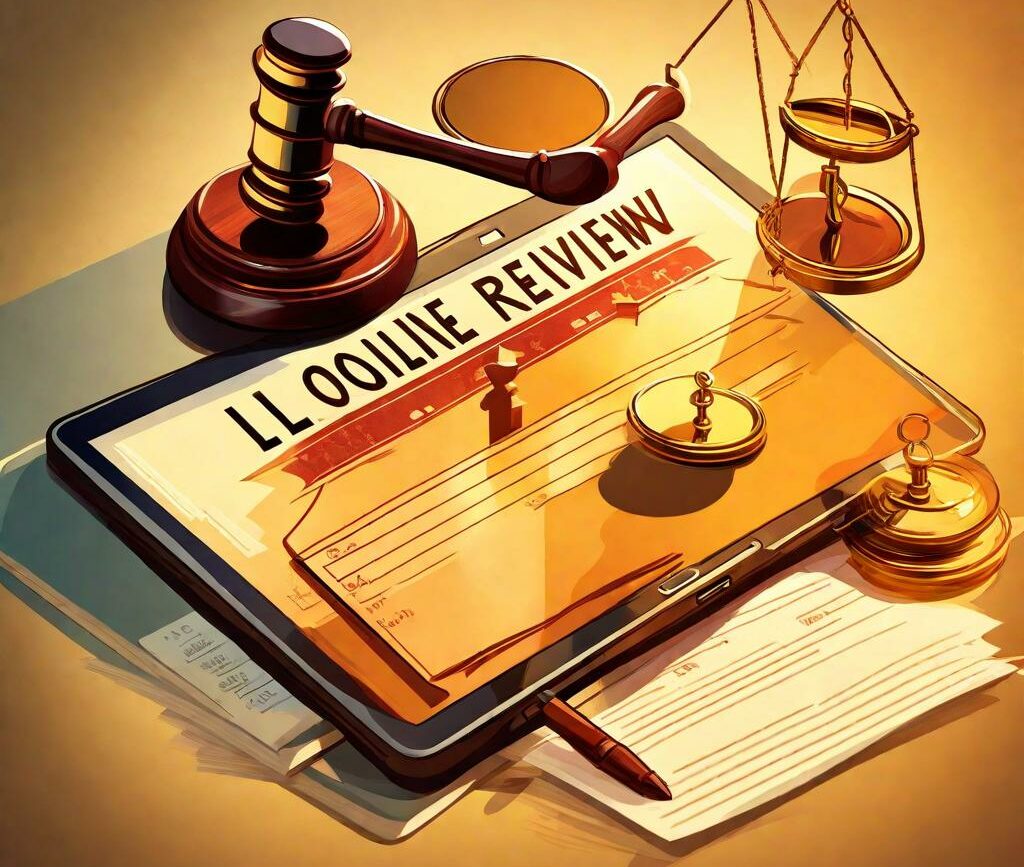
Online reviews have become an essential part of the real estate industry, providing potential buyers and sellers with valuable insights into the reputation and trustworthiness of estate agencies. In this digital age, understanding the legalities surrounding online reviews is crucial for estate agencies to effectively manage their online presence and safeguard their reputation. Let’s delve into the importance of online reviews, their role in building trust, the rise of review platforms, and the benefits and drawbacks they bring.
A. Understanding the Importance of Online Reviews
Online reviews have revolutionized the way people make decisions, including choosing the right estate agency for their needs. Gone are the days when individuals solely relied on word-of-mouth recommendations. Today, consumers turn to review platforms to gather information and assess the credibility of estate agencies.
B. Role of Online Reviews in Building Trust and Reputation
In the real estate industry, trust is paramount. Online reviews play a pivotal role in building trust and reputation for estate agencies. Positive reviews act as social proof, reinforcing the agency’s credibility and expertise. On the other hand, negative reviews can be detrimental, potentially dissuading potential clients from engaging with the agency.
C. The Rise of Online Review Platforms in the Real Estate Industry
With the advent of review platforms such as Yelp, Google Business, and specialized real estate websites, online reviews have gained significant prominence in the real estate industry. These platforms provide a centralized space for clients to share their experiences and opinions, making them a powerful tool for both buyers and sellers in the real estate market.
D. Benefits and Drawbacks of Online Reviews for Estate Agencies
Online reviews offer several benefits for estate agencies. They provide valuable feedback that can help agencies improve their services and address customer concerns. Positive reviews also serve as powerful marketing tools, attracting new clients. However, online reviews also have drawbacks. They are susceptible to fake or unfair reviews, which can tarnish an agency’s reputation. It is crucial for estate agencies to strike a balance between embracing online reviews and mitigating the risks they pose.
E. The Need for a Legal Framework in Managing Online Reviews
Given the significant impact online reviews can have on an estate agency’s reputation, it is imperative to establish a legal framework to guide their management. This framework should address consumer protection laws, advertising and marketing regulations, and intellectual property and copyright issues. By adhering to these legal considerations, estate agencies can navigate the complexities of online reviews and ensure a fair and transparent review culture.
Legal Considerations for Online Reviews

To effectively manage online reviews, estate agencies must understand the legal implications they carry. Let’s explore the basics of consumer protection laws, compliance with advertising and marketing regulations, and intellectual property and copyright issues.
A. The Basics of Consumer Protection Laws
Consumer rights and fair practices are at the core of consumer protection laws. Estate agencies have an obligation to provide accurate and truthful information to consumers. Misleading or deceptive online reviews can have legal implications, potentially infringing upon these consumer protection laws.
B. Compliance with Advertising and Marketing Regulations
Estate agencies must be cognizant of advertising standards and guidelines when it comes to online reviews. False or misleading claims made in reviews can violate advertising regulations. It is essential to maintain ethical practices and encourage authentic reviews that reflect the true experiences of clients.
C. Intellectual Property and Copyright Issues
Respecting intellectual property rights is crucial when publishing online reviews. Estate agencies must be cautious about using copyrighted images or other media without permission. Plagiarism and unauthorized use of content can lead to legal consequences. Respecting copyrights ensures a fair and legal review culture.
Managing Online Reviews Effectively

Effectively managing online reviews requires a well-thought-out review policy, credibility-building strategies, and professional responses to both positive and negative feedback.
A. Developing a Review Policy for Your Estate Agency
To promote a fair and transparent review culture, estate agencies should establish guidelines for online review conduct. These guidelines should outline the expectations for both clients and the agency, ensuring that reviews are genuine and unbiased. Additionally, the policy should provide clear procedures for monitoring and responding to reviews, especially negative or defamatory ones.
B. Building Credibility through Authentic Reviews
Encouraging legitimate and unbiased feedback is key to building credibility through online reviews. Estate agencies can establish trustworthy relationships with clients by providing exceptional service and actively seeking feedback. Positive reviews from satisfied clients will further enhance the agency’s reputation.
C. Responding to Online Reviews Professionally
Negative reviews can be challenging, but addressing them professionally is crucial. Estate agencies should have strategies in place to handle negative reviews promptly and constructively. Communicating with reviewers and resolving complaints in a professional manner showcases the agency’s commitment to customer satisfaction. Moreover, negative feedback can be transformed into opportunities for improvement.
Dealing with Fake or Unfair Reviews

Unfortunately, fake or unfair reviews are not uncommon in the digital landscape. Identifying and validating these reviews, reporting and removing them, and protecting the estate agency’s reputation are essential steps in managing such reviews.
A. Identifying and Validating Fake Reviews
Estate agencies should be vigilant in spotting red flags that indicate suspicious reviews. Unusual patterns, overly positive or negative language, or reviews lacking specific details can all be indicators of fake reviews. Validating the authenticity of reviews through additional checks, such as verifying client information, can help unveil potential fake or misleading reviews.
B. Reporting and Removing Fake or Unfair Reviews
Review platforms have policies and procedures in place to address inappropriate or violating content. Estate agencies should familiarize themselves with these guidelines and report any fake or unfair reviews accordingly. Working with third-party moderation services or legal professionals can provide additional support in removing damaging content.
C. Protecting Your Estate Agency’s Reputation
In light of fake or unfair reviews, estate agencies must implement strategies to minimize their impact. Leveraging positive reviews as a countermeasure helps maintain a balanced perception of the agency’s reputation. Additionally, strengthening online brand image and reputation management practices is essential to protect the agency’s credibility in the long run.
Summary and FAQs
A. Summary of Key Takeaways
Understanding the legalities of online reviews is paramount for estate agencies in the digital age. This article has explored the importance of online reviews, legal considerations, effective management strategies, and dealing with fake or unfair reviews. In summary, online reviews can be valuable tools for estate agencies, but they require careful navigation to maintain a positive and legally compliant reputation.
Frequently Asked Questions (FAQs)
Can estate agencies be held legally responsible for online reviews?
Estate agencies can be held responsible for online reviews if they engage in deceptive or misleading practices or if they fail to address defamatory content.
How should estate agencies handle negative reviews legally?
Estate agencies should professionally address negative reviews, communicate with reviewers to understand their concerns, and make efforts to resolve complaints. It is essential to avoid retaliatory or defamatory actions.
What are the consequences of posting fake reviews for estate agencies?
Posting fake reviews can damage an estate agency’s reputation and potentially lead to legal repercussions. Review platforms have strict policies against fake reviews, and legal action could be taken if the agency’s actions are deemed fraudulent.
By adhering to legal obligations, implementing effective management strategies, and understanding how to handle fake or unfair reviews, estate agencies can navigate the legalities of online reviews and establish a positive and trustworthy online presence.

